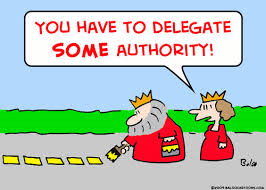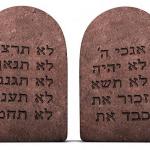Today’s lectionary reading from the Jewish scriptures is from Numbers. We find the liberated Israelites in the desert, and they are complaining—again. God has miraculously provided them with a daily supply of manna to keep them from starving, but everyone is pining for the wonderful variety of food they remember eating in Egypt.
We remember the fish we used to eat in Egypt for nothing, the cucumbers, the melons, the leeks, the onions, and the garlic; but now our strength is dried up, and there is nothing at all but this manna to look at.
Of course they have conveniently forgotten that when they were in Egypt they were slaves. God is understandably annoyed, and so is Moses. But Moses’ annoyance isn’t just with this rabble of complainers he is in charge of; he’s had it up to here with God as well.
Moses is tired of being the recipient of Israelite complaints when he’s not the one who put them in this situation. He needs help.
I am not able to carry all this people alone, for they are too heavy for me. If this is the way you are going to treat me, put me to death at once–if I have found favor in your sight–and do not let me see my misery.
In response to Moses’ complaint, God suggests that Moses take some of his power and authority and distribute it among some carefully selected folks so they can share the burden of leadership and responsibility. Moses selects seventy guys he trusts, brings them to the tent of meeting, God empowers the seventy men in response to which they start “prophesying,” and a solid chain of command and power sharing structure is established.

We learn a few things about delegating authority from this passage. First, authority and power appear to be zero sum, meaning that empowering others automatically means that the leader is disempowered to that same extent. Only secure people should be in leadership roles, in other words. Second, power needs to be distributed carefully, publicly, and according to recognizable procedures. Finally, others need to be clearly made aware of the new power structure. The “prophesying” part of the story means, at the very least, that the newly empowered have been publicly marked as such. Secretly adding layers of bureaucracy without transparency is a recipe for suspicion and resentment.
This all sounds eminently sensible—until problems arise in the next few verses. It turns out that two of the guys selected by Moses for empowerment didn’t make it to the tent of meeting, but they start prophesying in the camp as if they had participated in the official empowerment ceremony. In other words, they are acting with authority without having been officially empowered. Moses’ number one assistant, Joshua, tells Moses about the two guys and asks for permission to stop the unauthorized activity of these pretenders.
Surprisingly, Moses tells Joshua to leave them alone. “Are you jealous for my sake? Would that all the Lord’s people were prophets, and that the Lord would put his spirit upon them.” In the short span of one story authority has shifted from one person to the vision of a projected future in which anyone who has the vision and ability to be effective can act on it. What about the hierarchy? What about keeping tight control on how power is distributed? Is this any way to run an organization?
Apparently it is, because in today’s gospel reading from Mark similar issues arise. Jesus has empowered his disciples to preach the gospel, cast out demons, and heal the sick. Then John reports some disturbing news to Jesus: “Teacher, we saw someone casting out demons in your name, and we tried to stop him, because he was not following us.” The disciples assume that only those specifically authorized and empowered by Jesus to do special stuff should be doing it. This stranger using Jesus’ name to cast out demons is guilty of spiritual plagiarism, in other words. But just as Moses told Joshua, Jesus tells John and the rest to leave this guy alone. “Whoever is not against us is for us.”
As we often learn when reading stories about the intersection of the human and the divine, things divine operate according to entirely different rules than those to which we are accustomed. Or perhaps according to no recognizable rules at all. The divine spirit is frequently likened to the wind, which blows where it wants when it wants, without regard to our expectations, desires, or weather predictions. The takeaway? Divine power and authority are not a zero sum game. They can and will show up in all sorts of unlikely places, even those we have not authorized. Especially in those places.
For reflection: What do the stories from Numbers and Mark tell us about our human attempts to organize and control? Why are such attempts guaranteed to “quench the Spirit”?













